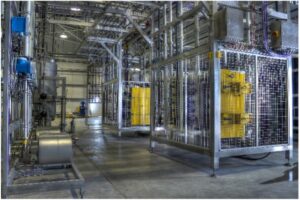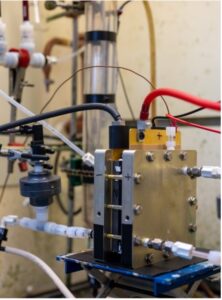by Michael Clark
Introduction
Photocatalysis and electrochemistry have long been useful tools in organic synthesis. These techniques allow for transformations under mild conditions without the use of stoichiometric reagents; however, by combining these two well-studied techniques it is possible to uncover previously inaccessible reactions. By using a photocatalyst to perform chemical transformations followed by the electrochemical regeneration of the catalyst, the need for strong chemical oxidants or reductants is removed, along with the possibility for unwanted electrochemical reactions due to the relatively low potential required.1 Some of these reactions have even been demonstrated in a flow-cell capacity, enabling the ability for potential scale-up to industrial production. Limitations currently exist in these chemical processes like the use of organic solvents that make it difficult to scale. However, companies such as the Electrosynthesis Company are uniquely positioned to help bridge that gap thanks to a deep understanding of both research lab, and industrial plant processes.
Below are a series of recent reports on the use of photoelectrochemistry in organic synthesis that demonstrate the combined use of photocatalysts with electrochemistry to perform previously difficult reactions, as well as issues that must be overcome before these techniques could be implemented for large-scale use.
Full Article: Unlocking New Potential using Photoelectrochemistry in Organic Synthesis


